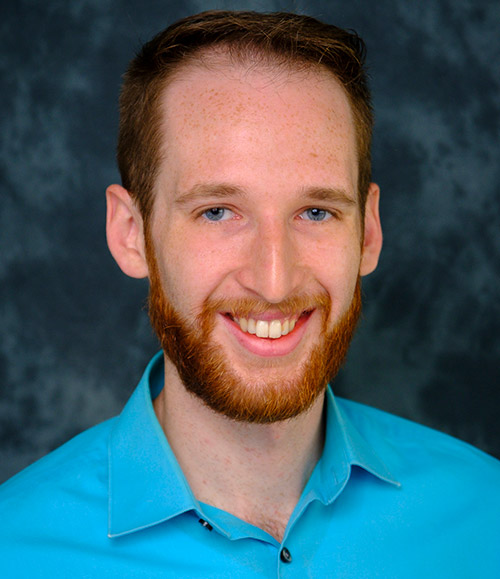Grad Student Internship Spotlight: Nathan Baker with Honeywell
November 30, 2023 - Shelly DeJong

Nathan Baker is a 4th year PhD student specializing in Organizational Psychology. Over the summer, Nathan began an internship with Honeywell to support the assessment team. Nathan sat down with us recently to talk about his interests, what he’s learning through this internship, and how he sees Organizational Psychologists uniquely contributing to companies like Honeywell.
Can you tell us about your internship?
I'm supporting the employee assessments team at Honeywell, which is a really small group. Honeywell is a big company so there are a lot of candidates going through the hiring process. They want to see how a candidate fits with the company and how likely they are to perform well. Their hiring practices include giving every candidate a personality test and a deductive reasoning examination. We also give candidates a few assessments specific to a given role. I help monitor those assessments to see how they are working. Some of those assessments are developed at Honeywell, but the majority are from big test vendors. We also measure how likely employees are to leave the company and we assess the internal labor market within Honeywell.
Why did you want to intern with Honeywell and work in the assessment area?
I’m interested in human interaction in the workplace and how that changes the way people behave. A big part of that is understanding what makes people different from one another. That’s where I see the intersection with a place like Honeywell—their selection systems often look at individual differences to help find the right person for a job.
Selection and Assessment is a big area in our field, and it is one of the most in-demand areas in applied work. I wanted to get experience in a HR talent analytics role for a big company and learn some of those things that are hard to learn from school. Like, learning to deal with IT systems and HR databases that don’t necessarily communicate with each other very well. Or learning how to interact with vendors who, in some cases, are trying to get your business. Or even how to manage those vendor relationships over time effectively. It’s invaluable to learn those skills through an internship.
We're also working with some emerging issues like Artificial Intelligence. There's a lot of discussion about how to implement emerging technologies and how that will affect the workforce. How do we use that effectively? Will it end up enhancing or eliminating jobs? Those are big questions, so it's interesting to see a company that's wrestling with that right now.
Have you been involved with developing any assessments with Honeywell?
One thing that was in development when I began, which was actually started by my fellow graduate student Connor Eichenauer, was a custom assessment for manufacturing jobs in northern Mexico. There was a need for a custom assessment for that location because it’s a different type of labor market. There are a lot of factories close to each other, so employees often job hop very quickly. We built an assessment looking at how likely a candidate is going to leave the company based on things that we can measure using psychological variables, like their persistence, how they react to stress, or how confident they feel in terms of looking for other jobs. We did an initial pilot before implementing that at the site and building our own custom platform. Our hope is that we can help the factory prioritize hiring people who will stay for at least a few months as opposed to leaving in say the first month.
With assessments like this, we’re working to make sure that it doesn’t adversely impact any protected groups—specifically gender, race, and age. So, a big part of our job is to make sure that it’s a fair process for all candidates. Companies may be focused on selecting better performers for their bottom line, but as Organizational Psychologists, we can also see opportunities to ask how we make the systems fair. How do we make this system something that's good for people who work there? That's an exciting part of the job.
As an Organizational Psychologist, you’re also taking coding classes at MSU. Can you talk about why that is important to you?
There are so many emerging approaches to understanding data in our field. There's a trend to increasingly use simulations to work with large data sets. There are tools to do that, but they aren't always applied to behavioral sciences. I’m trying to learn some of those skills so that I can approach new types of research. One thing that's interesting about companies is, unless you're brought in specifically to work on those kinds of issues, you likely wouldn’t be able to interpret them effectively. If you use a vendor to do the analytics, it is important to be able to understand what their interpretations mean and how they went about interpreting it--opposed to just relying on what they're telling you.
There's an objective truth that you could get to with the data, but there's so many decisions that are made along the way to analyze it. That leaves room for bias or even just different opinions on what the data is showing. And it's important to understand how that happens. What are the assumptions at play? Only then can you start to think critically about it.

